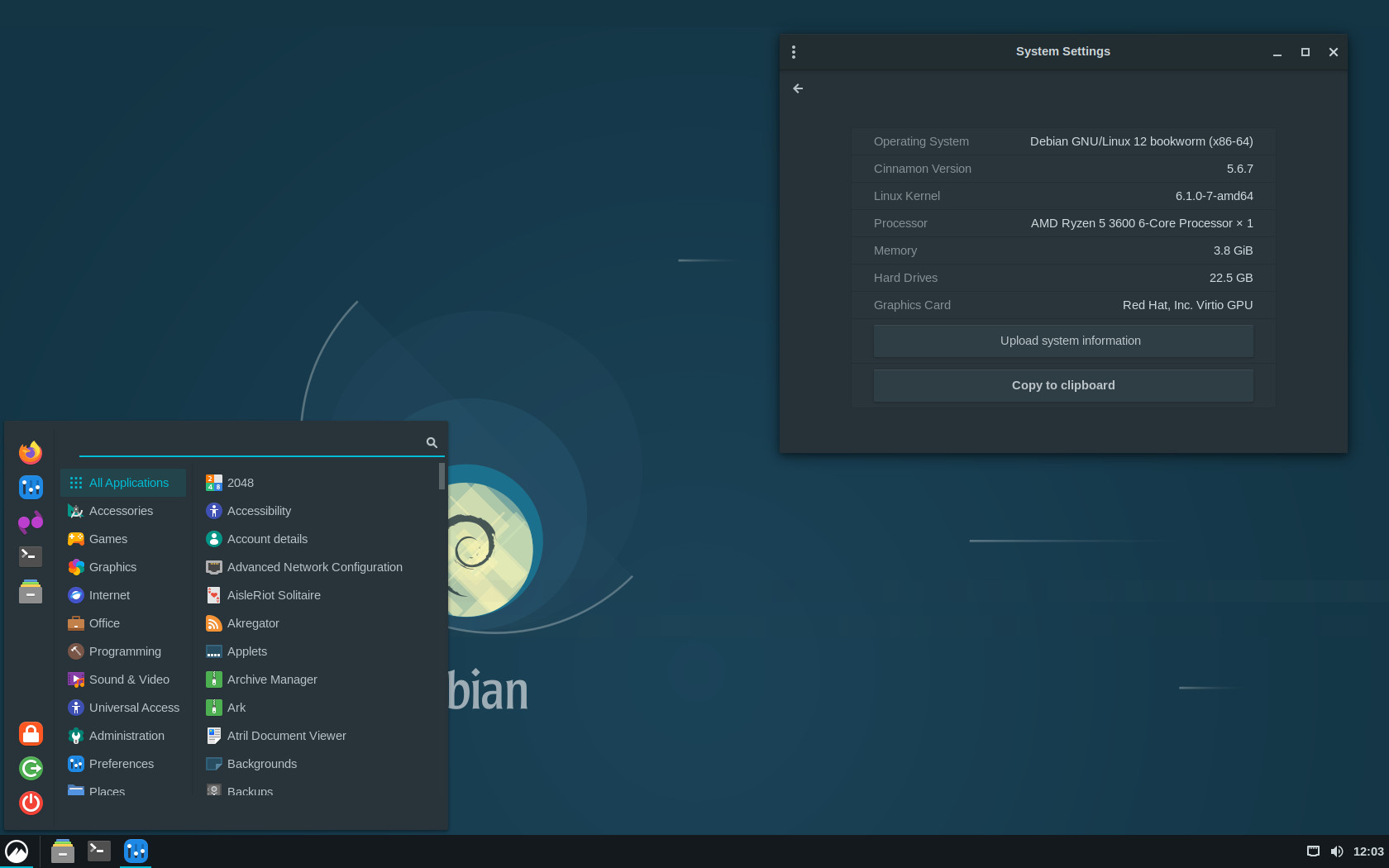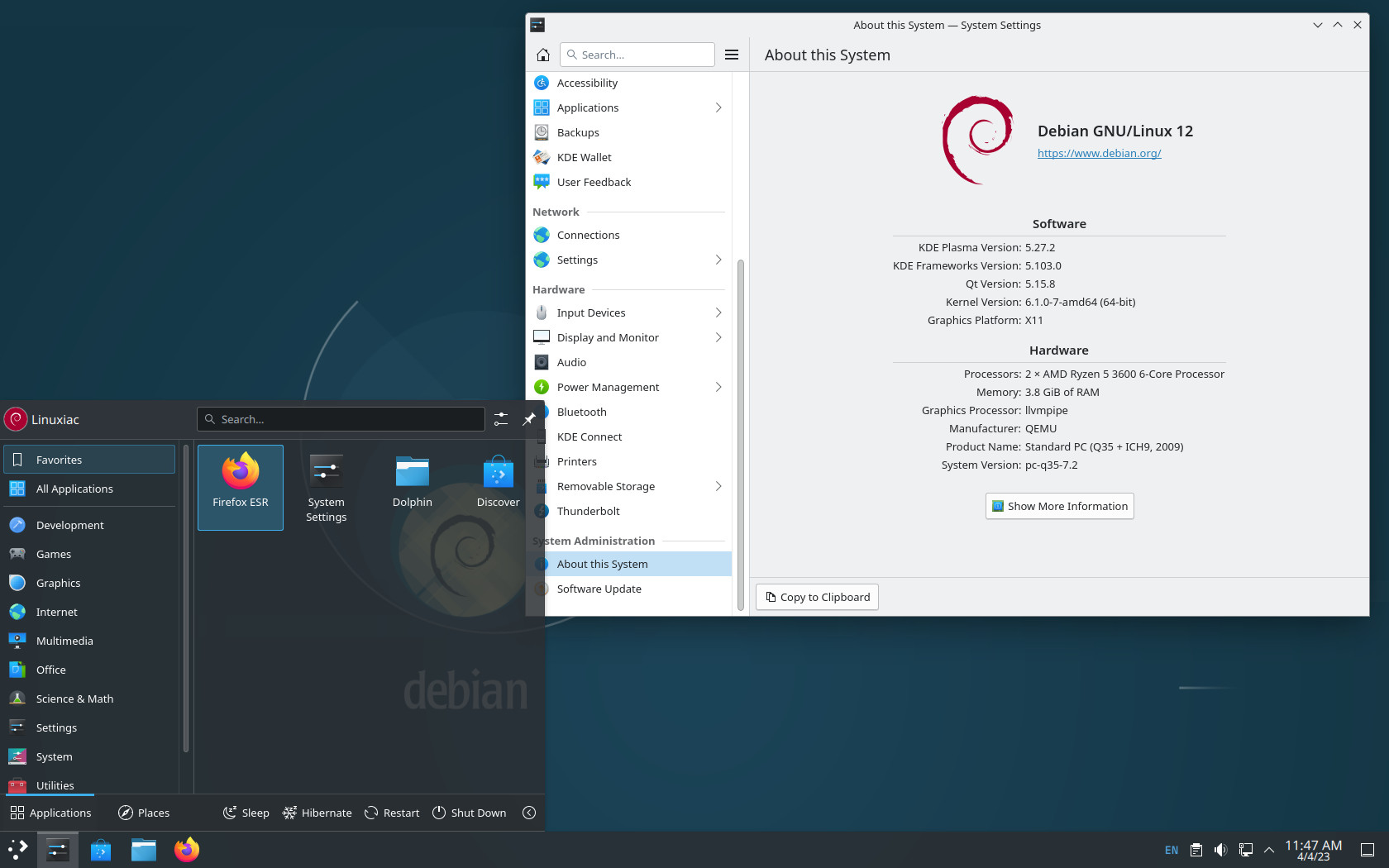Sometimes, getting your computer programs to work just right can feel a little bit like putting together a puzzle where some of the pieces don't quite fit. It's a common thing in the world of software, where different parts need to speak the same language, or else things just won't run. This often comes down to compatibility, making sure one piece of software can happily live alongside another.
A recent chat we had brought up a situation where someone was trying to install something on their Debian 12 system, and they hit a snag. The program kept asking for a specific version of a very core part of the system, something called GLIBC 2.38, but their computer only had GLIBC 2.36. This kind of mismatch, well, it can stop things dead in their tracks, you know?
So, we're going to talk a bit about why this happens, what GLIBC actually is, and some of the ways people try to get around this particular version problem when they are using Debian 12. It's about helping your computer programs play nicely together, after all.
Table of Contents
- What's the Fuss About GLIBC 2.38 and Debian 12?
- Why Does My Program Need GLIBC 2.38 on Debian 12?
- Is GLIBC 2.38 a Big Deal?
- What Happens if Debian 12 Lacks GLIBC 2.38?
- Ways to Get GLIBC 2.38 on Debian 12
- Can I Just Update GLIBC on Debian 12?
- Building GLIBC 2.38 for Debian 12 From Scratch
- Understanding GLIBC - A Quick Look
- Staying Up-to-Date with Debian 12 and GLIBC 2.38
What's the Fuss About GLIBC 2.38 and Debian 12?
It seems that a lot of folks, when they try to get certain applications going on their Debian 12 computer, run into a bit of a wall. The common message they get is that something called GLIBC 2.38 is missing. This happens quite often, actually, when a newer piece of software expects a more current version of a core system component than what's available by default.
One person, for instance, mentioned they were trying to run a game. This game, it turned out, really needed at least GLIBC 2.38 to even start. But, as it stands, Debian 12, the operating system they were using, typically comes with GLIBC 2.36 already in place. This difference, a mere two version numbers, can cause a program to simply refuse to work, which is, you know, rather frustrating for someone just wanting to play their game.
We also heard from someone who tried to get OpenVINO 2025 running on Debian 12. It turns out that OpenVINO 2025, a piece of software for artificial intelligence tasks, needs GLIBC 2.38. Since Debian 12, by default, provides GLIBC 2.36, this creates a situation where the two just don't get along. It's not officially supported, which means you might run into these sorts of difficulties, so.
Why Does My Program Need GLIBC 2.38 on Debian 12?
When a program is made, it's often built with a specific set of tools and libraries in mind. If a software developer uses the latest tools, their program might then expect the very newest versions of things like GLIBC. So, if a program, say, needs GLIBC version 2.38, and your Debian 12 system only has 2.36, the program simply won't have the pieces it needs to run. It's a bit like trying to use a newer type of key in an older lock; it just won't turn.
In some cases, the problem isn't just about a program not starting. There was a mention of a particular piece of software where a part called the "backtrace function" didn't quite check the boundaries of its memory space correctly. This kind of issue, you see, could lead to bigger problems. It might cause the system to stop working entirely, or perhaps even allow someone to run unwanted instructions on your computer, which is a pretty serious concern, too.
This kind of requirement for a specific GLIBC version is fairly common with newer software releases. Developers often build their programs against the most current libraries to take advantage of new features or improvements. This means that if your operating system isn't quite as up-to-date with those core libraries, you might find yourself in a bit of a bind trying to run the latest applications. It's just how software dependencies work, really.
Is GLIBC 2.38 a Big Deal?
GLIBC, the GNU C Library, is a very important part of Linux systems. It's like the central toolkit that almost every program on your computer uses to do basic things, such as handling text, dealing with files, or connecting to the internet. So, when a new version like GLIBC 2.38 comes out, it usually brings with it a number of changes and improvements. These can include making things run a bit faster, fixing little bugs, or even making the system a bit more secure.
After about six months of work, the folks who make GLIBC announced that version 2.38 was ready. This new release, apparently, has some parts that are no longer recommended for use, and it also includes some good updates for security. For anyone not quite familiar with it, GLIBC is simply the standard C library for GNU and Linux systems. It's designed to be something that can work well on many different types of computers and to perform its tasks quickly, so.
So, yes, a new version of GLIBC is generally a pretty big deal because it affects so much of what your computer does. It means that programs can potentially run better, and the overall system can be more stable and safer. However, getting these updates into your system, especially a core component like GLIBC, needs to be done with some thought, as it can affect everything else that runs on your computer.
What Happens if Debian 12 Lacks GLIBC 2.38?
When a program needs GLIBC 2.38 and your Debian 12 system only has 2.36, the most common thing that happens is that the program simply won't start. You'll likely see an error message telling you that a certain library, or a specific version of it, is missing. This means you won't be able to use that particular piece of software until the GLIBC requirement is met. It's a direct conflict, you know, a bit like trying to plug a European appliance into an American outlet without an adapter.
Beyond just not running, there can be other worries. We heard about a specific weak point in an older GLIBC version, where a part that helps track what a program is doing, the "backtrace function," didn't correctly check the limits of its memory space. If this kind of thing happens, it could lead to your computer system just stopping altogether, which is often called a "denial of service." Or, in some really serious situations, it could even allow someone to run unwanted instructions on your computer, which is, frankly, quite concerning.
The biggest worry from this kind of weak spot is that your whole computer system might become unusable. This means that the main problem you could face is that your computer won't be there for you when you need it. So, while a simple "program won't start" is annoying, the possibility of your system being completely unavailable is a much larger issue, as a matter of fact.
Ways to Get GLIBC 2.38 on Debian 12
If you find yourself needing GLIBC 2.38 on your Debian 12 system, there are a few paths people consider. One common idea is to try and update your existing GLIBC. However, it's widely known that trying to change such a core library can be a rather tricky business. It's not something you just do without thinking, as it could potentially cause problems with other parts of your system that rely on the older version. So, it's a bit of a delicate operation, you see.
For those using other Linux versions, or even for Debian users looking for specific files, you can sometimes find pre-made packages of `libc.so.6` (which is GLIBC 2.38 for 64-bit systems) for various distributions. These include systems like AlmaLinux, CentOS, Fedora, Mageia, openSUSE, and others. This means that for some systems, getting the right version might be as simple as downloading a file, though integrating it into Debian 12 might require more steps.
Some people have also found workarounds using package managers like Nix. It seems that certain older Nix packages, like versions 22.11 or 22.5, might have come with Nix built using GLIBC 2.36. The good news is that Nix itself can often update to a version that includes GLIBC 2.38, and this update is designed not to cause problems with the rest of your system. This is a pretty neat solution for those already using Nix, as it sort of handles the compatibility for you, basically.
Can I Just Update GLIBC on Debian 12?
For Debian or Ubuntu users, a common thought is to simply run a few commands to update their system's libraries. You might try something like `sudo apt-get update` followed by `sudo apt-get install libc6`. While these commands are the usual way to update packages, directly upgrading GLIBC on a stable system like Debian 12 can be, well, a bit of a headache. The reason is that so many other parts of your operating system depend on the version of GLIBC that's already there.
If you force an update to a newer GLIBC version that isn't officially supported by your Debian 12 release, you could end up with a system that doesn't work correctly. Programs might crash, or even your entire system might become unstable. This is why many people say that trying to update GLIBC on your own can be "hairy" – it's full of potential pitfalls. It's not like updating a regular application; this is a very core piece of the system, you know.
So, while the commands exist, and it seems like a straightforward solution, the reality is that changing GLIBC on a stable operating system version like Debian 12
Related Resources:



Detail Author:
- Name : Lesly Barrows
- Username : abednar
- Email : obotsford@lockman.org
- Birthdate : 2004-08-30
- Address : 2508 Yasmeen Parkways Lake Rodger, LA 08196-9133
- Phone : +19567898950
- Company : Wiegand-Kirlin
- Job : Auditor
- Bio : Sint quisquam delectus distinctio et similique nulla. Hic sit ullam libero expedita quis quae dicta. Quia corporis voluptatem perspiciatis nostrum non.
Socials
linkedin:
- url : https://linkedin.com/in/luciano_kozey
- username : luciano_kozey
- bio : Consequuntur eveniet delectus iste.
- followers : 3207
- following : 2528
twitter:
- url : https://twitter.com/lucianokozey
- username : lucianokozey
- bio : Quis totam quam vel nihil expedita ad reiciendis. Voluptas rerum praesentium odit voluptatem distinctio reprehenderit cum.
- followers : 5467
- following : 2260